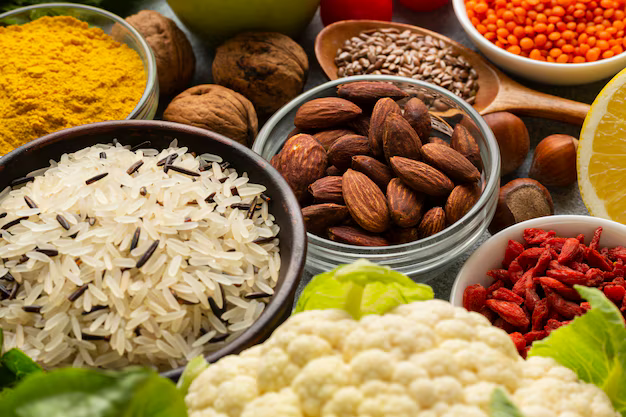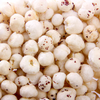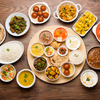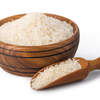Fuel Your Body: 14 Protein-Packed Indian Vegetarian Foods

In recent years, plant-based diets have gained significant popularity due to their numerous health benefits, and for vegetarians, a protein-rich diet is vital to ensure they receive enough nutrients for overall health. India, with its rich culinary heritage, offers a wide variety of protein-packed vegetarian foods. These meals are not only healthy but also full of flavor, making them a delightful addition to any diet. Whether you're a vegetarian or simply looking to incorporate more plant-based proteins into your diet, here are 14 protein-rich vegetarian Indian foods that will help support optimal health and wellbeing.
1. Lentils (Dal)
Lentils, or "dal," are a staple in Indian cuisine and a rich source of protein, fiber, and essential vitamins. The different types of lentils, such as masoor dal (red lentils), toor dal (pigeon peas), and moong dal (yellow lentils), offer a range of health benefits. Lentils are highly versatile and can be used in soups, curries, and stews. They are an excellent source of plant-based protein, with 18 grams of protein per cooked cup.
Lentils also contain iron, which is essential for energy production and maintaining healthy blood cells. When paired with rice or whole grains, lentils provide a complete protein profile, making them an ideal meal for vegetarians.
2. Chickpeas (Chole)
Chickpeas, or "chole," are another protein-packed legume that is commonly found in Indian cuisine. Whether you prepare them as a hearty curry, toss them in a salad, or roast them for a crunchy snack, chickpeas are a versatile protein source. They contain 15 grams of protein per cooked cup and are rich in dietary fiber, making them excellent for digestion and gut health.
Chickpeas are also a good source of iron, magnesium, and folate, which support various bodily functions, including nerve health and immune function. Their high fiber content helps maintain stable blood sugar levels and prevents unhealthy spikes.
3. Tofu (Soybean Curd)
Tofu is a popular protein-rich food made from soybeans and is often used as a meat substitute in Indian vegetarian dishes. It is packed with high-quality protein, containing around 10 grams per 100 grams, and provides essential amino acids necessary for muscle repair and growth. Tofu is also rich in calcium, magnesium, and iron, which support bone health and immune function.
Tofu can be prepared in a variety of ways, such as sautéed with vegetables, added to curries, or even grilled. Its ability to absorb flavors makes it an excellent addition to Indian recipes.
4. Paneer (Indian Cottage Cheese)
Paneer is a popular dairy product in Indian cuisine and an excellent source of protein for vegetarians. A 100-gram serving of paneer contains about 18 grams of protein, making it one of the highest protein sources in Indian vegetarian foods. Additionally, it is rich in calcium and phosphorus, which are essential for maintaining strong bones and teeth.
Paneer is a versatile ingredient that can be used in a variety of dishes, such as "paneer tikka," "paneer butter masala," or "saag paneer." Its soft and creamy texture makes it a favorite in both savory and sweet preparations.
5. Quinoa
Quinoa is a high-protein grain that has gained popularity worldwide for its health benefits. While not traditionally Indian, it has been integrated into many Indian kitchens. Quinoa is considered a complete protein, as it contains all nine essential amino acids that the body cannot produce on its own. With approximately 8 grams of protein per cooked cup, quinoa is an excellent choice for vegetarians looking to boost their protein intake.
In addition to its protein content, quinoa is rich in fiber, iron, and magnesium. It can be used as a base for curries, salads, or even in place of rice in Indian dishes.
6. Moth Beans (Matki)
Moth beans, known as "matki" in Hindi, are a great source of plant-based protein, offering about 12 grams of protein per cooked cup. They are also rich in fiber, iron, and antioxidants, which contribute to improved digestion and overall health. Moth beans are commonly used in Indian dishes like "matki usal" (a sprouted moth bean curry) and "matki pulao."
The high fiber content of moth beans helps regulate blood sugar levels and maintain healthy cholesterol levels. They also aid in weight management by promoting feelings of fullness and reducing cravings.
7. Green Peas (Matar)
Green peas are a common ingredient in Indian vegetarian cooking and offer a healthy dose of protein. They contain about 9 grams of protein per cooked cup, along with vitamins A, C, and K, as well as fiber and antioxidants. Green peas are versatile and can be added to curries, rice dishes like "pulao," or even stuffed in parathas.
Peas are a good source of plant-based protein that helps in muscle repair and immune function. Their fiber content supports digestive health and can help lower the risk of chronic diseases such as heart disease and diabetes.
8. Edamame (Young Soybeans)
Edamame, or young soybeans, are another excellent source of plant-based protein, containing about 17 grams of protein per cooked cup. They are also rich in fiber, vitamins, and minerals, including iron, calcium, and folate. Edamame is often used in Indian fusion dishes or as a healthy snack.
Including edamame in your diet can help support muscle growth and repair, improve bone health, and boost energy levels. It is a great protein option for vegetarians and vegans.
9. Chia Seeds
Chia seeds are small but mighty when it comes to protein content. They provide about 4 grams of protein per ounce and are rich in omega-3 fatty acids, fiber, and antioxidants. Chia seeds can be sprinkled on top of salads, added to smoothies, or used to make chia pudding.
These seeds are also a great source of calcium, which is important for bone health. Their high fiber content helps improve digestion, regulate blood sugar levels, and promote a feeling of fullness, making them a great addition to any diet.
10. Amaranth (Rajgira)
Amaranth, known as "rajgira" in Hindi, is a nutritious ancient grain that is often used during fasting periods in India. It is a complete protein, containing all nine essential amino acids. With about 9 grams of protein per cooked cup, amaranth is a great alternative to rice or wheat for vegetarians looking to increase their protein intake.
Amaranth is also rich in iron, magnesium, and fiber, making it an excellent choice for promoting healthy digestion, boosting energy, and supporting overall wellbeing. It can be used in a variety of Indian dishes, such as "rajgira paratha," "amaranth khichdi," or "amaranth porridge."
11. Almonds (Badam)
Almonds, or "badam," are a delicious and protein-rich nut that provides about 6 grams of protein per ounce. They are also an excellent source of healthy fats, vitamins, and minerals, including vitamin E, magnesium, and calcium. Almonds are often used in Indian desserts like "badam halwa" or "badam kheer," as well as in savory dishes.
Almonds help improve heart health, support brain function, and regulate blood sugar levels. They are also a good snack for boosting energy levels throughout the day.
12. Spinach (Palak)
Spinach, or "palak," is a nutrient-dense leafy green that is packed with protein, iron, and vitamins A, C, and K. A cup of cooked spinach contains about 5 grams of protein, along with a variety of antioxidants that support immune function and reduce inflammation.
In Indian cuisine, spinach is used in dishes like "palak paneer," "palak dal," and "palak puri." Its versatility makes it easy to incorporate into various meals, providing a healthy dose of protein and nutrients.
13. Soya Chunks (Textured Vegetable Protein)
Soya chunks, or textured vegetable protein (TVP), are made from defatted soy flour and are an excellent source of protein, with approximately 25 grams of protein per 100 grams. These chunks are commonly used as a meat substitute in Indian vegetarian dishes and can be added to curries, biryanis, and even kebabs.
Soya chunks are also rich in iron and calcium, making them a great addition to a vegetarian diet for supporting bone health, preventing anemia, and boosting muscle growth and repair.
14. Seitan (Wheat Meat)
Seitan, also known as wheat meat, is a protein-rich food made from wheat gluten. It contains about 21 grams of protein per 3.5 ounces (100 grams) and is often used in Indian vegetarian dishes as a meat substitute. Seitan is high in protein but low in fat, making it an excellent option for those looking to build muscle and support weight management.
Seitan can be used in a variety of Indian recipes, including curries, stir-fries, and wraps, and its firm texture makes it a popular substitute for meat in many dishes.
Conclusion
Incorporating protein-rich vegetarian Indian foods into your diet is a great way to maintain optimal health and wellbeing. Whether you're consuming lentils, paneer, chickpeas, or quinoa, these nutrient-dense foods are not only packed with protein but also offer a wide range of vitamins, minerals, and antioxidants that contribute to overall vitality.
If you're in the USA and looking to buy these ingredients for your next protein-rich vegetarian meal, consider checking out Buniyaa, your go-to destination to buy Indian groceries online. With a wide selection of authentic Indian ingredients, Buniyaa ensures you have access to the best quality groceries to help you cook your favorite protein-rich Indian dishes, no matter where you are.
Start nourishing your body today with these healthy and delicious vegetarian protein sources from Indian cuisine!




